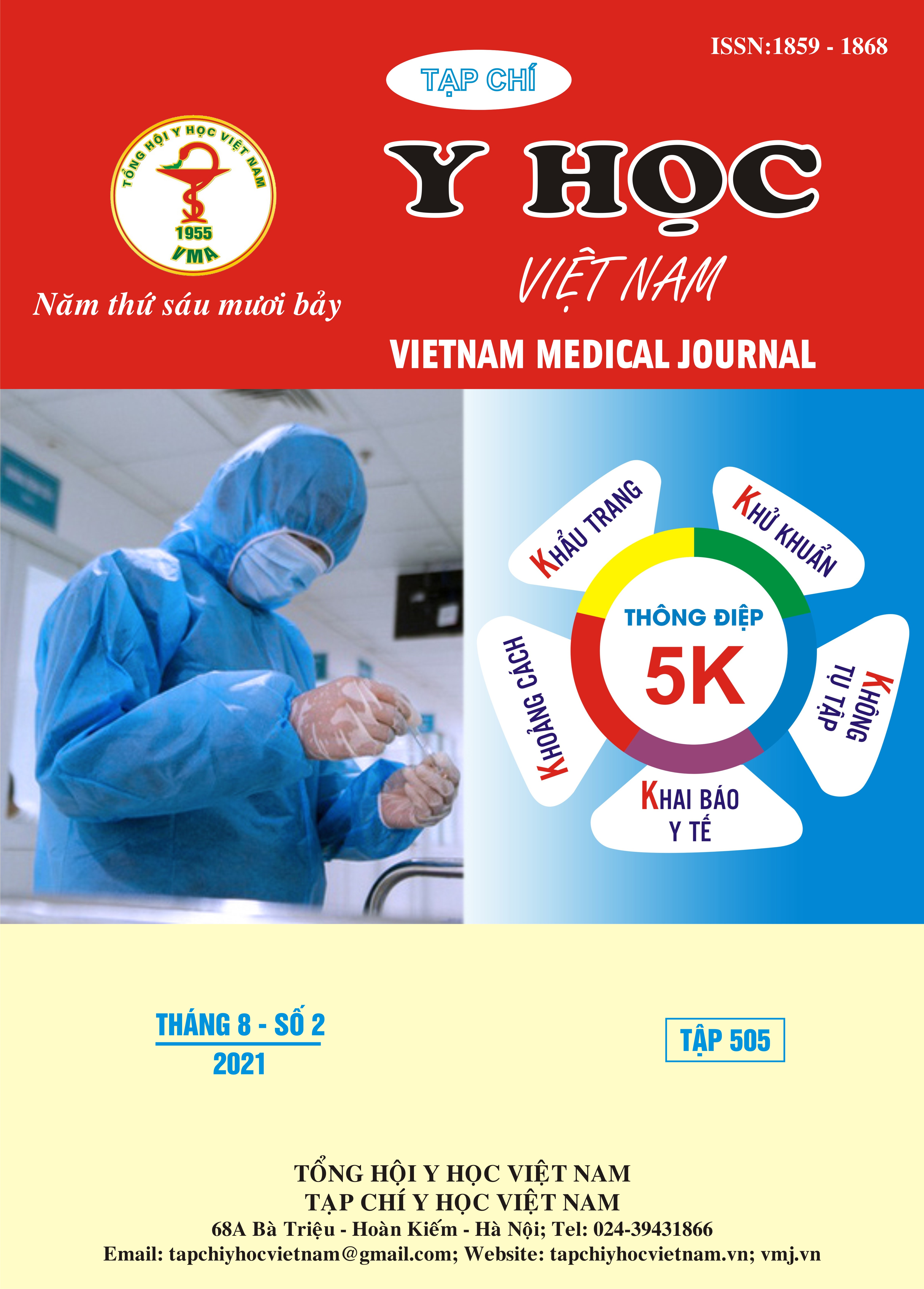DETECTION OF IGH GENE REARRANGEMENTS IN MULTIPLE MYELOMA PATIENTS AT BLOOD TRANSFUSION HEMATOLOGY HOSPITAL
Main Article Content
Abstract
Objectives: Detection of IgH gene rearrangements in Vietnamese multiple myeloma patients using PCR technique. Subjects and methods: A prospective study was conducted on 43 patients with newly diagnosis of multiple myeloma at Blood Transfusion Hematology Hospital from June 2019 to June 2021. We detected IgH gene rearrangements using Multiplex PCR technique. Results: The frequency of IgH gene rearrangements were detected in 74.4% of patients using Vh (FR1) primers, the rate of detection were consecutively 95.3% and 97.7% when we combine Vh (FR1/2) primers and Vh (FR1/2/3) primers. Conclusions: By combining three primers set were designed for three FR regions, we could detect the IgH gene rearrangements in the majority of myeloma patients.
Article Details
Keywords
IgH gene rearrengement, multiple myeloma, FR region
References
2. Cao Văn Động, Nguyễn Thị Tuyết Nhung, Võ Thị Thanh Trúc, Huỳnh Nghĩa, Nguyễn Phương Liên, Phan Nguyễn Thanh Vân, Phù Chí Dũng, Nguyễn Tấn Bỉnh, Phan Thị Xinh. Đánh giá bệnh tồn lưu tối thiểu trên bệnh bạch cầu cấp dòng lympho B ở trẻ em bằng kỹ thuật RQ-PCR các gen Ig/TCR. Y học Việt Nam 2020, 719-727.
3. Aubin J, Davi F, Nguyen-Salomon F, et al. Description of a novel FR1 IgH PCR strategy and its comparison with three other strategies for the detection of clonality in B cell malignancies. Leukemia. 1995; 9(3):471-9.
4. Bai Y, Orfao A, Chim CS. Molecular detection of minimal residual disease in multiple myeloma. Br J Haematol. 2018;181(1):11-26.
5. González D, van der Burg M, García-Sanz R, et al. Immunoglobulin gene rearrangements and the pathogenesis of multiple myeloma. Blood. 2007;110(9):3112-21.
6. Martinez-Lopez J, Lahuerta JJ, Pepin F, et al. Prognostic value of deep sequencing method for minimal residual disease detection in multiple myeloma. Blood. 2014;123(20):3073-9.
7. Medina A, Jiménez C, Sarasquete ME, et al. Molecular profiling of immunoglobulin heavy-chain gene rearrangements unveils new potential prognostic markers for multiple myeloma patients. Blood Cancer J. 2020;10(2):14.
8. Paiva B, van Dongen JJ, Orfao A. New criteria for response assessment: role of minimal residual disease in multiple myeloma. Blood. 2015;125(20):3059-68.
9. Puig N, Sarasquete ME, Balanzategui A, et al. Critical evaluation of ASO RQ-PCR for minimal residual disease evaluation in multiple myeloma. A comparative analysis with flow cytometry. Leukemia. 2014;28(2):391-7.


